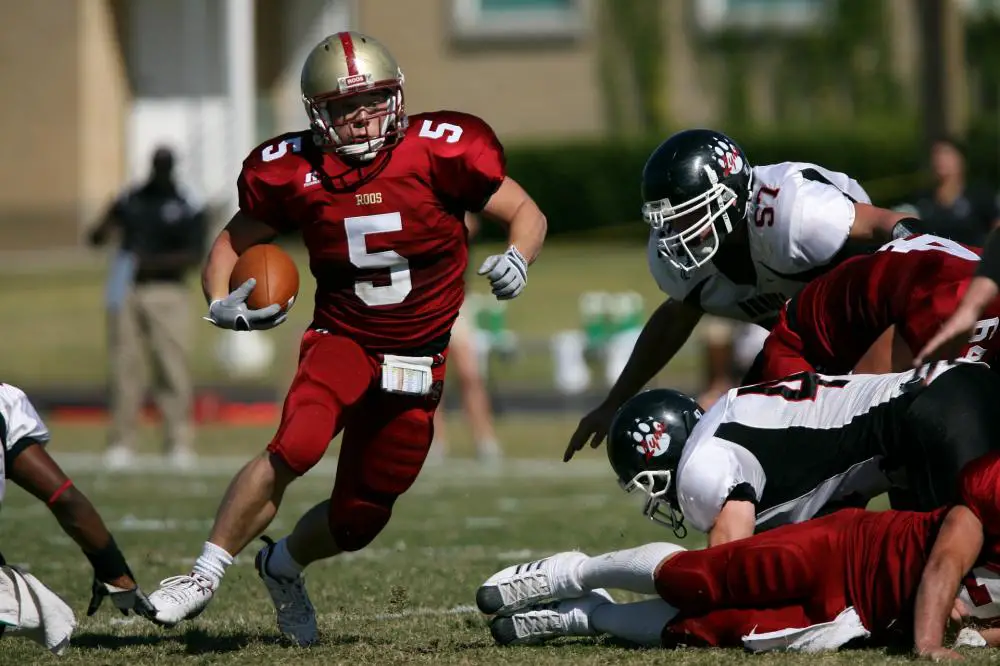Becoming a youth football coach can be a daunting task for most parents. It can also feel like one of the most unimportant roles in your child’s life. But it doesn’t have to be that way. Becoming a youth football coach is an opportunity for you to make a big difference in your child’s life as well as other boys and girls in the community.
Coaching allows you to positively impact young people while also spending time with your kid. However, it’s not as easy as putting on pads and hitting the field. You need to have specific skills and knowledge about youth football in order to coach effectively.
Whether you’re coaching your own child or another parent has asked you to help out, here are tips on how to become a great youth football coach:
Build Trust with Your Players
At the start of the season, you’ll likely have a mix of youth players with various levels of experience and maturity. Some of your players may also be new to the program while others may have been playing for years. Regardless, you’ll need to build trust with each player to be a successful coach.
The best way to do this is by showing your players that you care about them both on and off the field. This means you need to actively listen to their concerns, show up to practices on time, and be prepared for each practice. You can also help your players build trust by creating an atmosphere where they feel safe to make mistakes and learn from them.
You can do this by NOT berating, humiliating, or embarrassing a player when they make a mistake. Instead, simply show them a more effective way to perform a technique.
Learn the Basics of Football
As a youth football coach, you’re responsible for teaching your players the fundamentals of the game. However, you may have not played the sport since high school or college. Fortunately, you can still be an effective coach even if you haven’t played recently. Simply put, you need to know the basics of football in order to be a great youth football coach.
You don’t need to know every play that a college or NFL team uses. Instead, you need to know the basics of how to play the game. You need to know how to properly put your players in the right positions on the field, how to teach them how to properly catch or throw a football, and how to properly execute each position.
You can start by reading the rules of youth football and then reviewing some of the basic football plays. You can also research online how to coach each position.
Motivation Is Key for Youth Coaches
As the coach, you’re responsible for getting your players excited about the season and practices. You also need to help your players stay motivated throughout the season, even when they’re tired or want to quit. You can also give motivation lectures online if students are not around. Fortunately, there are a few ways you can do this:
– Set a Vision. Before every season, sit down with your team and establish both a short- and long-term vision for the team. Let them know what the team’s goals are as well as what each player’s individual goals are. This will help your players stay motivated throughout the season.
– Create an Enthusiastic Atmosphere During Practices. During practices, you need to show your players that you’re excited to be there. You also need to let them know that you want to be there coaching them. Let your players know that you’re there because you love football and want to help them get better. You can also try adding some music to practices to create an energetic atmosphere.
– Offer Incentives. Let your players know that you’ll offer incentives for great practice performance. You can give positive player rewards, like letting them choose what play they want to run at the next practice. You can also offer incentives for things outside of practice as well, like letting players have pizza after a game or letting them pick their next practice date.
Use Practices as a Coaching Tool
Practices are your best opportunity to teach your players the fundamentals of football as well as build their skills and confidence. You don’t need to run a complicated, highly physical practice every day. Instead, you want to run practices that are focused on the fundamentals and are fun for your players. You can do this by designing practices that include the following:
– Practice Ends with Fundamental Drills. You want to start practices with higher-level drills that allow your players to get some game-like reps. However, you should end practices with fundamental drills like running routes, tackling, and catching passes. This allows you to correct mistakes and give your players the chance to work on the basic skills of their positions.
– Mix Up Game Situations with Fundamental Drills. A lot of youth practices consist of running the same plays over and over again. While this is a necessary part of practices, you also need to mix in game situations. This means running a route or two as well as having your team pass or receive the ball in scrimmage situations. This will help your players get more comfortable with the game while also practicing their fundamental skills.
– Mix Up Drills Every Week. Youth practices tend to get stale quickly. You can combat this by mixing up your drills every week. You can also rotate your drills to allow players to focus on different aspects of football each week. While practices will get stale at some point, you can help extend their freshness by consistently varying your drills.
Be Firm but Fair
As the coach, you’re responsible for setting the tone for your team. This includes how you interact with your players. You want to be firm but fair. You want to hold your players accountable when they make mistakes, but you also want to be fair when assessing their mistakes. You can do this by following the following practices:
– Hold Regular Practices. You want to hold practices at least once a week. You also want to make sure that you’re practicing enough, which is about two hours for younger players and about three hours for older players. The more you practice, the better your team will be.
– Make Practices Different Every Week. You don’t want to run the same drills every week. Instead, you want to mix up your drills every week. You can also rotate your drills week to week so your players are working on different aspects of football each week. These will not only keep practices fresh but also helps in insulin resistance and keeps the players fit.
– Be Consistent with Your Coaching. You want to be consistent with your coaching so your players know what to expect. You want to be consistent with your practice schedule, the drills you run at practice, and your expectations for your players. This consistency will help your players know what to expect and will help them improve.
Establish Clear Rules and Expectations
Just like in any workplace, you need to establish clear rules and expectations for your players. These rules are important for a couple of reasons. First, they demonstrate that you’re in charge and that you’re serious about coaching your team. Second, they help keep your players safe by keeping them from doing things that might cause an injury. You can establish these rules and expectations by following these steps:
– Hold an Initial Meeting with Your Players. At the start of the season, you want to meet with your players to establish your rules and expectations. You also want to use this meeting to welcome new players, let them know what to expect from practices and games, and answer any questions they have about the team and the sport.
– Post the Rules and Expectations for Players to See. You also want to post the rules and expectations for your players to see during practices and games. You can post these rules on a large whiteboard or you can write them on a dry-erase board. You can also post them on a website or app like Coaches Coach.
Provide an Environment for Learning
As a coach, you want your players to enjoy playing the sport and want to improve as players. You can do this by creating an environment where your players can learn and improve. You can do this in a few different ways:
– Help Players to Learn from Mistakes. The best thing you can do to help your players improve is to let them learn from their mistakes. You don’t want to berate your players when they make a mistake. Instead, you want to help them learn from the mistake so they don’t make it again.
– Create a Positive, Coaching Environment. You can help your players learn by creating a positive coaching environment. This means you don’t berate or yell at your players during practices. You can also help your players learn by letting them know

